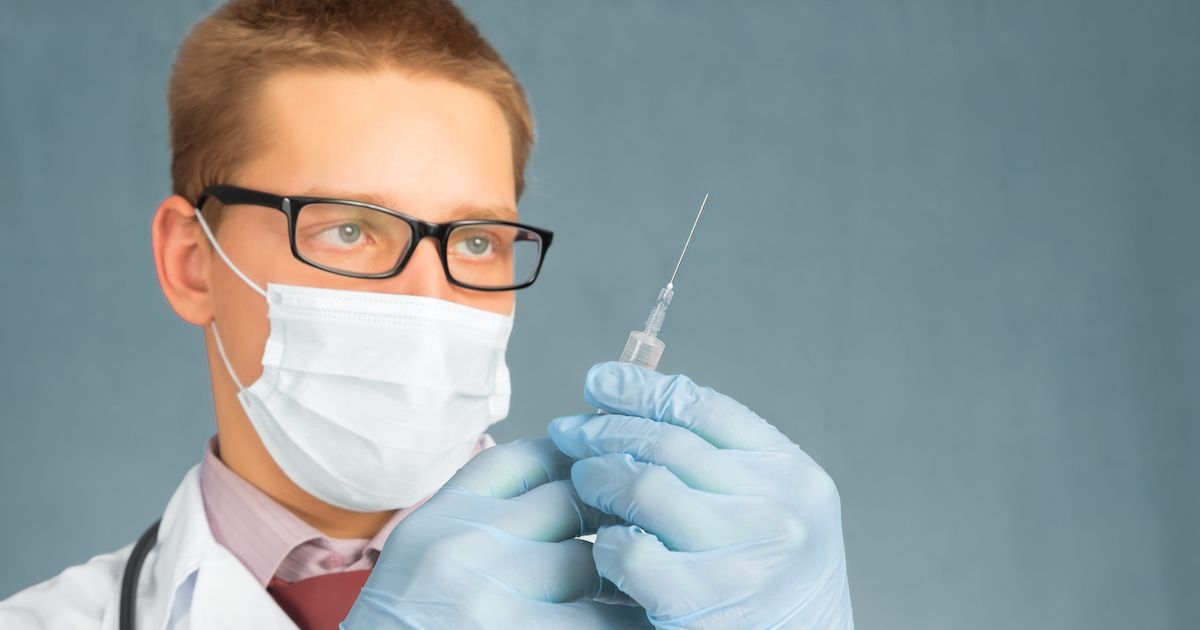- Bone Health
- Immunology
- Hematology
- Respiratory
- Dermatology
- Diabetes
- Gastroenterology
- Neurology
- Oncology
- Ophthalmology
- Rare Disease
- Rheumatology
Targeted Incentives Prove Effective in Boosting Adalimumab Biosimilar Uptake in France
A study comparing 2 different financial incentive programs in France to encourage adalimumab biosimilar use concluded that incentivizing individual clinical units was more effective than incentivizing entire hospitals.
A study comparing 2 different financial incentive programs in France to encourage adalimumab biosimilar use concluded that incentivizing individual clinical units was more effective than incentivizing entire hospitals.
The retrospective observational study compared two financial incentive programs implemented in France to increase adalimumab biosimilar use. In France, the interministerial economic committee for health products (CEPS) sets prices for national health insurance (NHI)-covered treatments and sets biosimilar prices at a 40% discount compared to reference products in the ambulatory care setting. As pharmacy-level substitution was not yet permitted in France (and is currently limited to filgrastim and pegfilgrastim biosimilars), the authors said, only clinicians were able to switch a patient from a biologic to a biosimilar. Thus, the French government introduced incentives to increase prescriptions for biosimilars.
The investigators concluded that the experimental case led to better biosimilar uptake than the general case, suggesting that rewarding the clinical unit directly was more effective than rewarding the hospital as a whole. | Image credit: Alex Photo - stock.adobe.com

One incentive, the general case, redirects 20% of the price difference between a biosimilar and originator to hospitals, based on hospital prescriptions dispensed in community pharmacies. The second incentive, the experimental case, redirects 30% of the price difference to the prescribing clinical unit. These incentives were previously used to encourage etanercept and insulin glargine biosimilars, and adalimumab was added to the program in 2019, after the launch of the first adalimumab biosimilar in Europe. The investigators compared the general and experimental incentives for adalimumab biosimilars over 19 months. Each hospital was permitted to choose only 1 of these 2 incentives. The general case was the default option, and the experimental case was available to interested hospitals that submitted proposals.
The investigators analyzed data from all 40 hospitals in the experimental case and 91 of the 211 hospitals in the general case and noted the other 120 general case hospitals were removed because of low use of adalimumab overall.Since each hospital selected its own incentive and there was no randomization, there were differences between hospitals in the 2 groups, which the authors cited as a potential limitation. For example, the experimental group included more public teaching hospitals, and hospitals were larger than in the general case group. The authors added that hospitals motivated to participate in the experimental case likely had a greater interest in increasing biosimilar use.
Prior to the launch of adalimumab biosimilars, the mean volume of adalimumab dispensed from each hospital prescription and the number of hospitals that had experience with the etanercept biosimilar experimental case were higher in the experimental case group. After biosimilar launch, the volume of adalimumab (reference product and biosimilars) dispensed increased over time in both groups, and was consistently higher in the experimental group, with 61% to 65% of total adalimumab dispensed from experimental group hospitals.
Following the launch of adalimumab biosimilars, the volume of biosimilar adalimumab dispensed from hospital prescriptions increased in both groups, by 64% in experimental group hospitals from October 2018 to October 2020, and by 72% in general case hospitals. However, hospitals in the experimental case had a higher biosimilar penetration rate than the general case group, 39% vs 30% by October 2020. Hospitals in the experimental case dispensed 66% of total adalimumab biosimilars.
Subgroups of hospitals based on previous experience with the etanercept experimental case incentive were also analyzed. Twenty-three hospitals in the experimental case and 10 hospitals in the general case had also participated in the etanercept experimental case. Biosimilar uptake was the same, 23%, in the adalimumab experimental case, regardless of experience with the etanercept experimental case.
The group of hospitals in the general case for both adalimumab and etanercept had the lowest monthly mean volume of adalimumab dispensed and a lower rate of biosimilar use compared to the other subgroups. The investigators also observed that hospitals in the general case for adalimumab that had previously been in the experimental case for etanercept “seemed to be positively influenced by their previous experience with the experimental incentive for etanercept biosimilars that induced a better adalimumab biosimilar uptake.”
Based on their sample of hospitals, the authors said, the use of adalimumab biosimilars will have saved €8.9 million in experimental case hospitals and €7.5 million in general case hospitals between January 2019 and October 2020. However, they said, these are likely underestimates, since they only had access to a subset of community pharmacies and general case hospitals and did not have access to data on prescription renewals.
The investigators concluded that the experimental case led to better biosimilar uptake than the general case, suggesting that rewarding the clinical unit directly was more effective than rewarding the hospital as a whole. They commented that “physicians are highly motivated when their efforts are directly recounted,” and added that their preliminary results must be confirmed with complete data extending to the end of the experiment in January 2023. Their previous study on the incentives encouraging etanercept biosimilars also found that the experimental case improved biosimilar uptake compared to the general case.
Reference
Tano M, Paubel P, Ribault M, Degrassat-Théas A. Comparison of two financial incentives to encourage the use of adalimumab biosimilars: results of a French experiment close to clinicians. Pharmacoecon Open. Published online July 2, 2024. doi:10.1007/s41669-024-00505-7
Newsletter
Where clinical, regulatory, and economic perspectives converge—sign up for Center for Biosimilars® emails to get expert insights on emerging treatment paradigms, biosimilar policy, and real-world outcomes that shape patient care.
